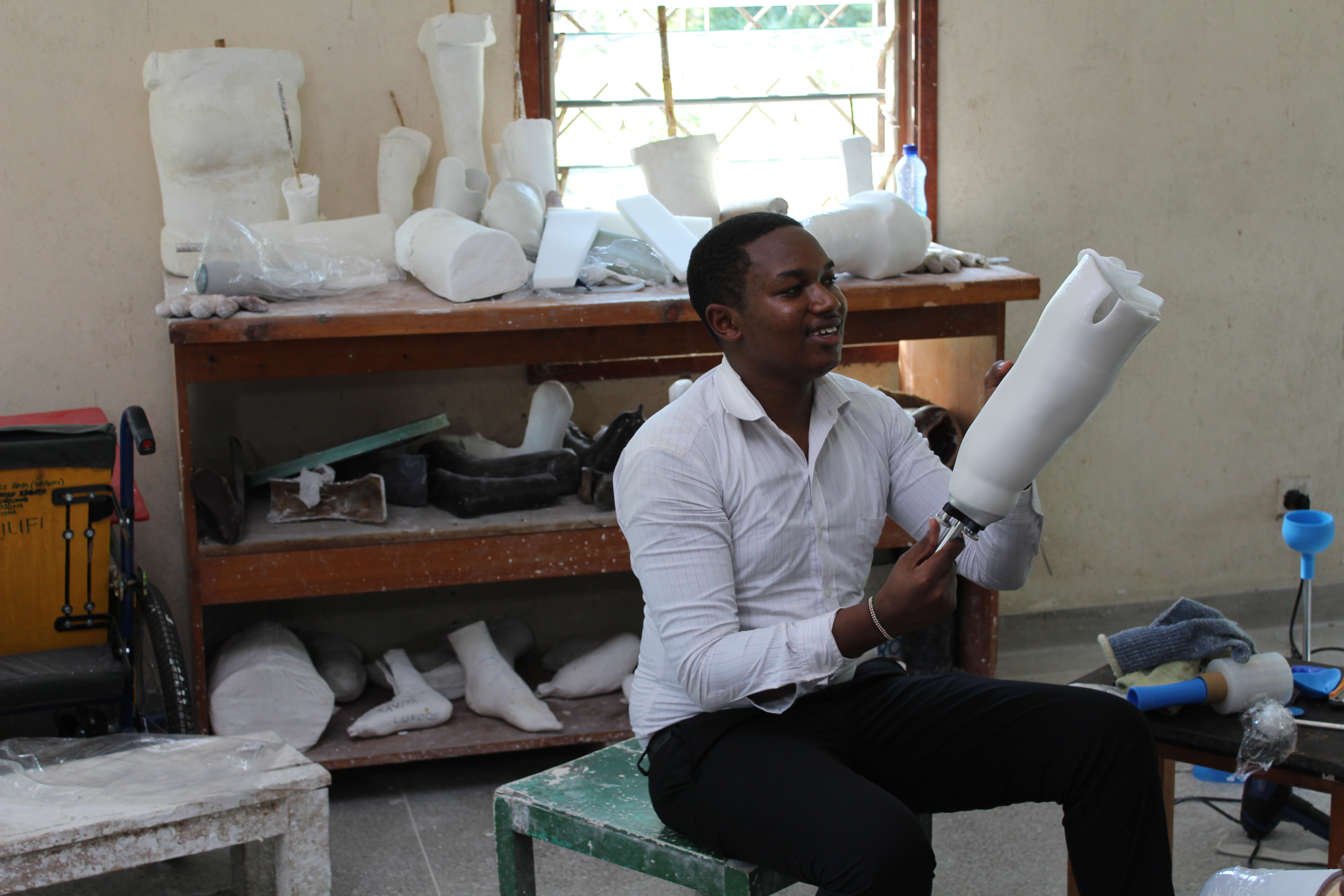Publications
-
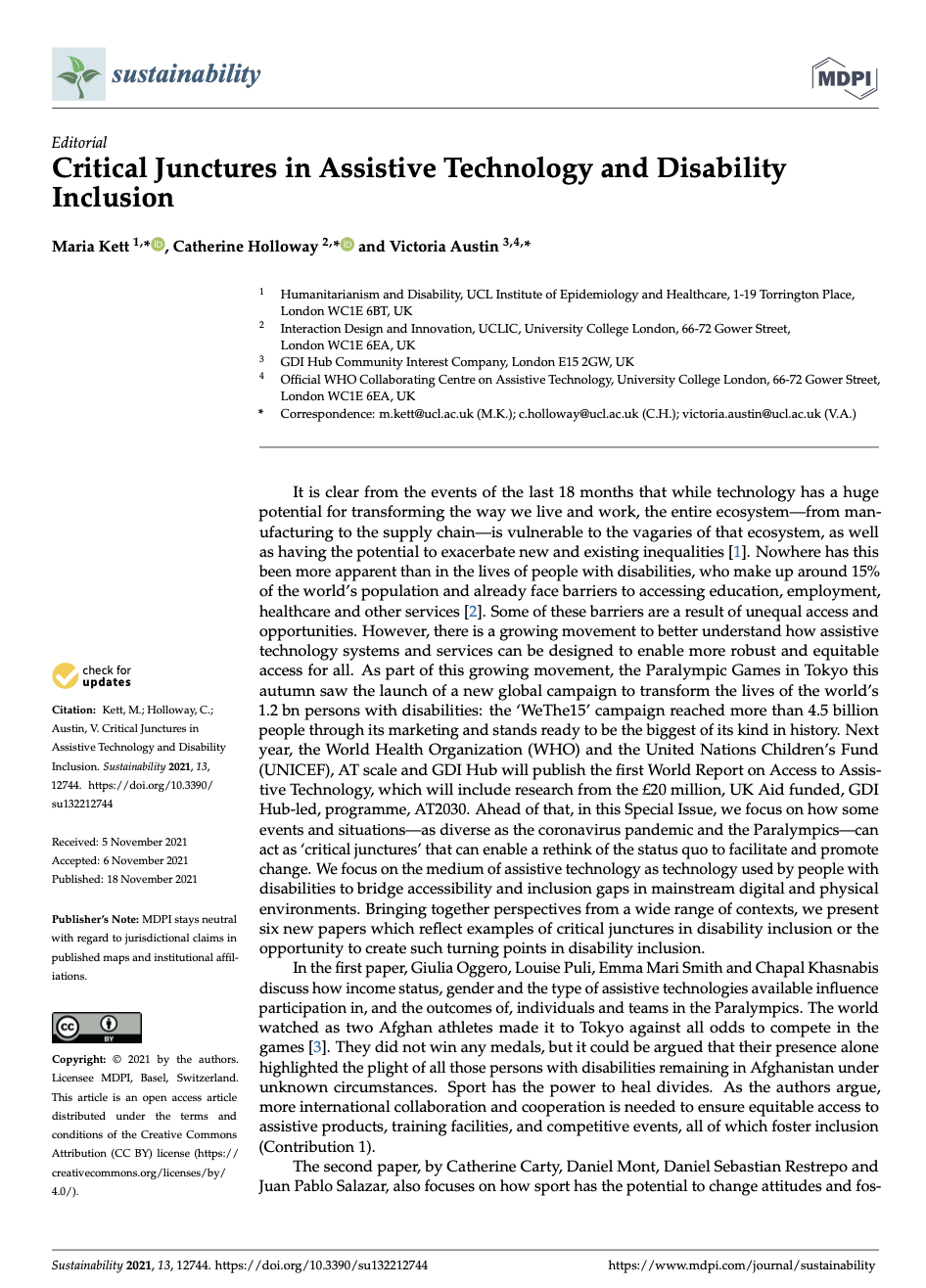
Critical Junctures in Assistive Technology and Disability Inclusion
Catherine Holloway, Vicki Austin, Dr Maria KettNov. 5, 2021Academic Research PublicationsA commentary written by Maria Kett, Catherine Holloway and Vicki Austin in a Special Issue of Sustainability that focuses on how some events and situations can act as ‘critical junctures’ that can enable a rethink of the status quo to facilitate and promote change and turning points in disability inclusion.
-
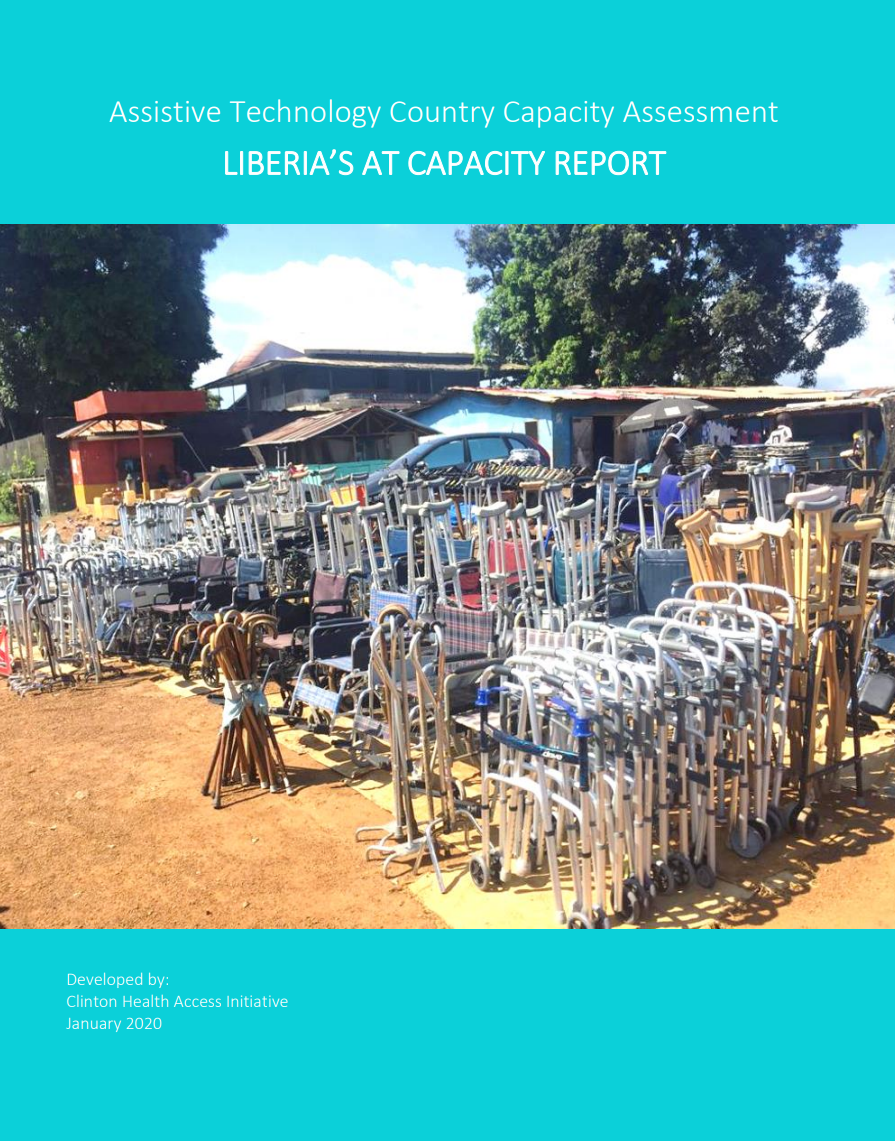
Liberia Country Capacity Assessment
Clinton Health Access InitiativeNov. 2, 2021LiberiaCase Studies and ReportsLiberia has a disability prevalence of 3.17%. Of the disabled population, the majority experience visual impairments (34%), followed by mobility impairments (25%), hearing impairments (11%), communication impairments (4%), and cognitive impairments (4%). This Assistive Technology Country Capacity Assessment looks to understand the country’s current systems capacity to provide AT. The findings are intended to increase awareness and knowledge of AT among partners; and to identify gaps that would benefit from increased and coordinated investments.
-
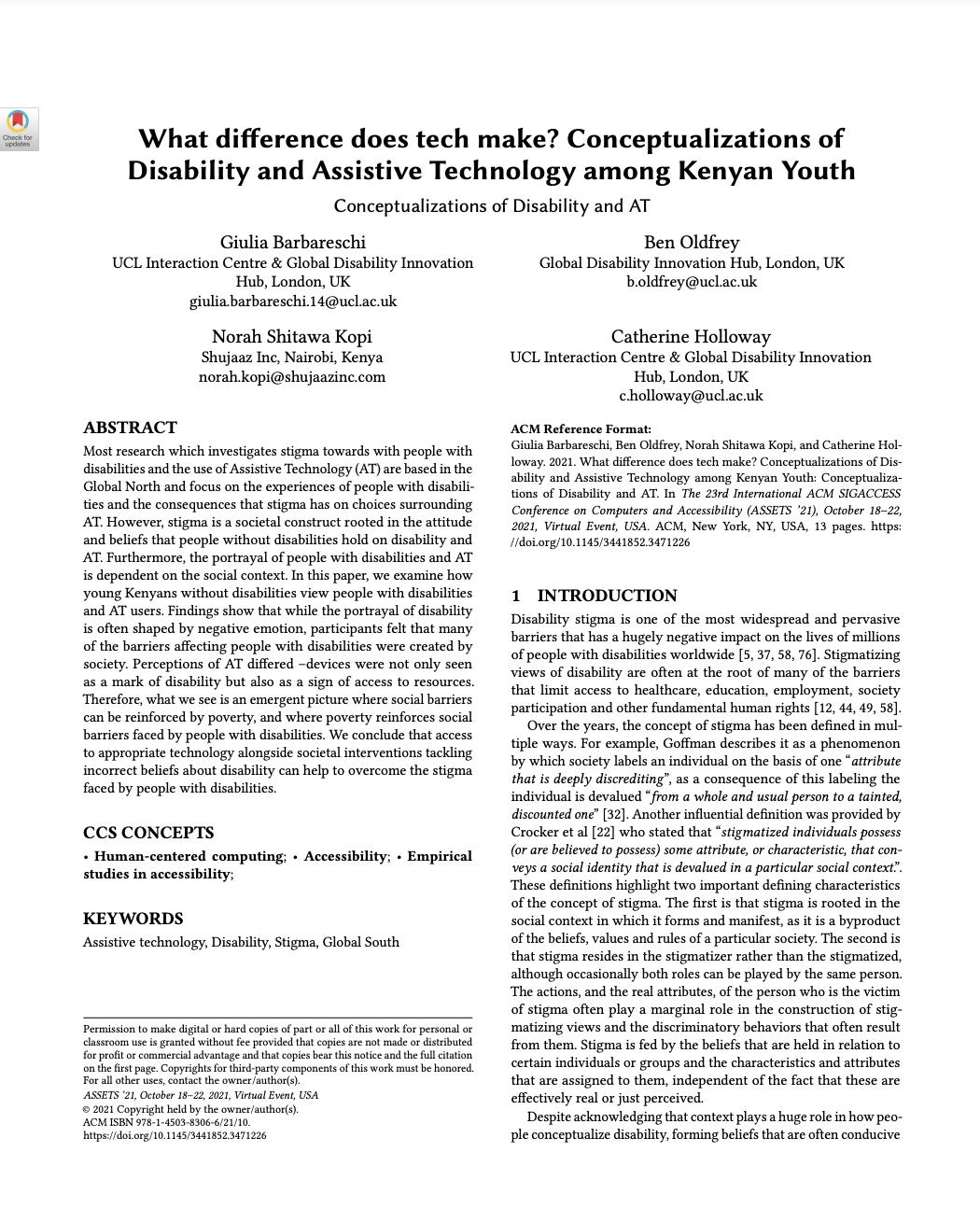
What difference does tech make? Conceptualizations of Disability and Assistive Technology among Kenyan Youth: Conceptualizations of Disability and AT
Catherine Holloway, Giulia Barbareschi, Dr Ben Oldfrey, Norah KopiOct. 31, 2021KenyaAcademic Research PublicationsThis research article examines how young Kenyans without disabilities view people with disabilities and AT users.
-
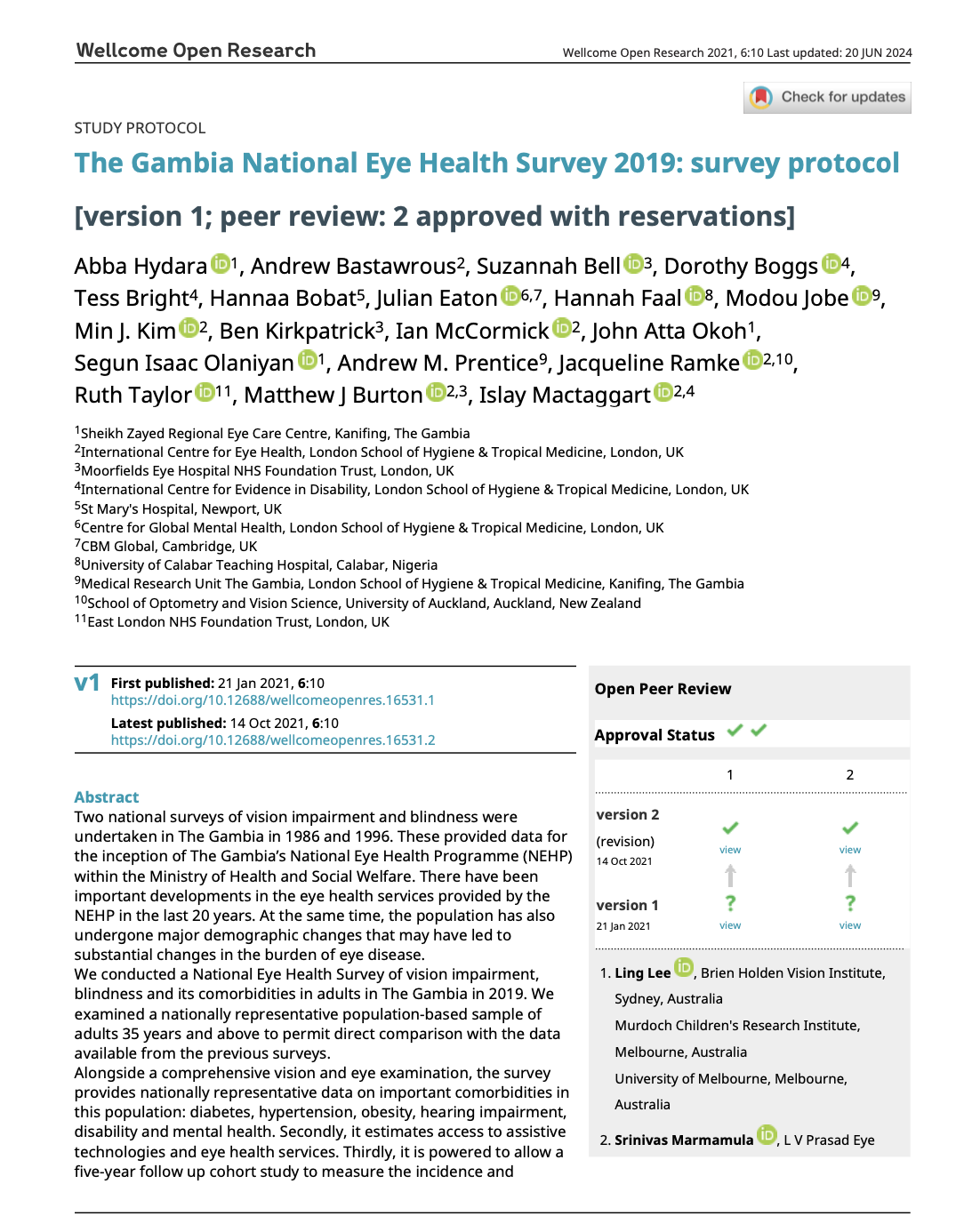
The Gambia National Eye Health Survey 2019: survey protocol
Abba Hydara, Dorothy Boggs, John A. Okah, Segun I. Olaniyan, Ian McCormick, Tess Bright, Suzannah Bell, Andrew Bastawrous, Hannaa Bobat, Julian Eaton, Hannah Faal, Modou Jobe, Min J. Kim, Ben Kirkpatrick, Andrew M. Prentice, Jacqueline Ramke, Islay Mactaggart, Matthew J. Burton, Ruth TaylorOct. 14, 2021GambiaAcademic Research PublicationsSurvey protocol of a National Eye Health Survey of vision impairment, blindness and its comorbidities in adults in The Gambia in 2019.
-
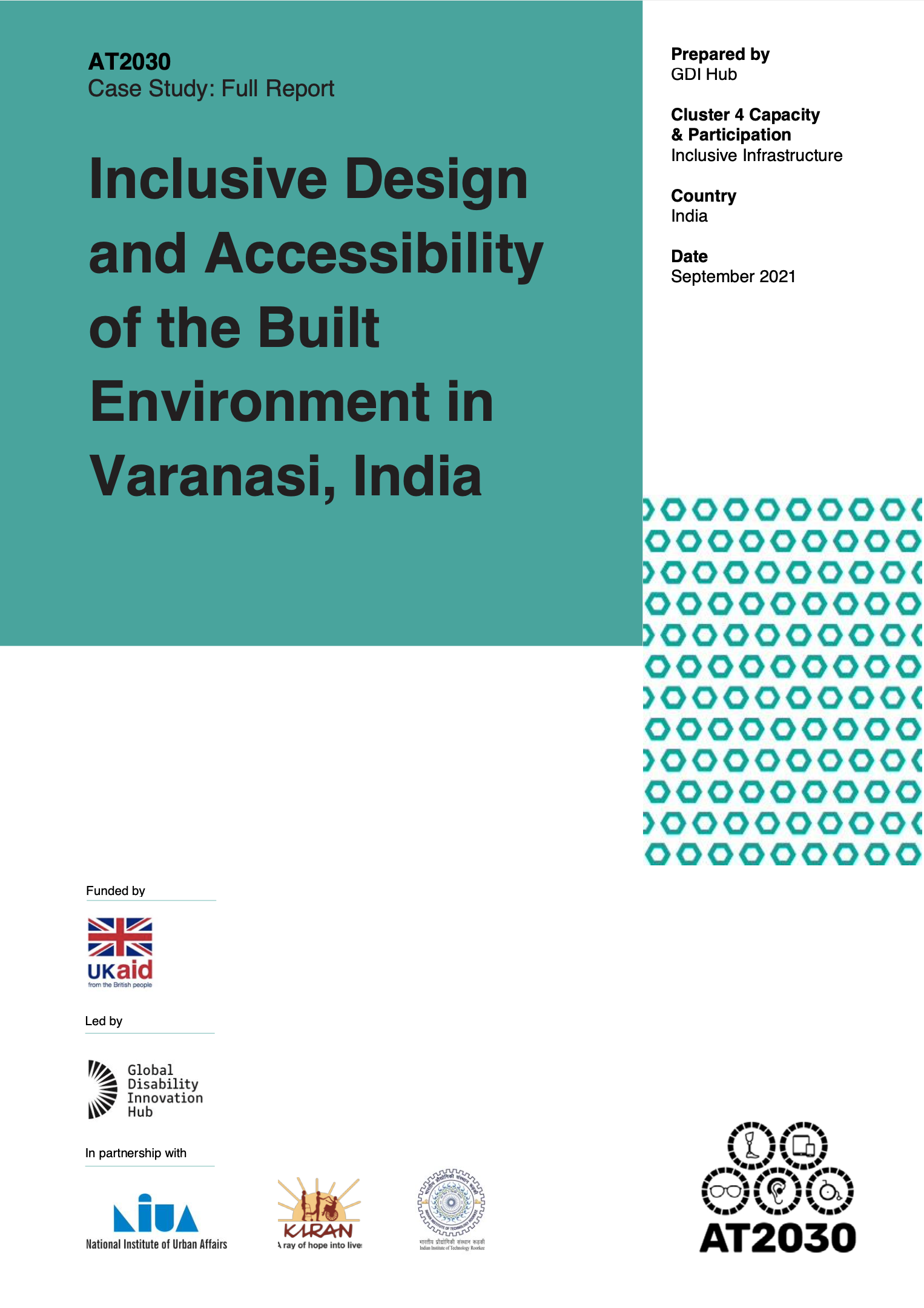
Inclusive Design and Accessibility of the Built Environment in Varanasi, India
Mikaela Patrick, Iain McKinnon, Satish Mishra, Shivani Gupta, Prabha Roy, Utsav Choudhury, Kavita Murugkar, Gaurav RahejaOct. 13, 2021IndiaCase Studies and ReportsThe purpose of this case study is to explore the state of inclusive and accessible environments for persons with disabilities in Varanasi, India, through engagement with policy, industry and community stakeholders (policy, practice and people). Through this engagement, the case study is developing evidence on the challenges and opportunities for implementing inclusive and accessible design in Varanasi and makes recommendations on local actions towards becoming a more inclusive city.
-
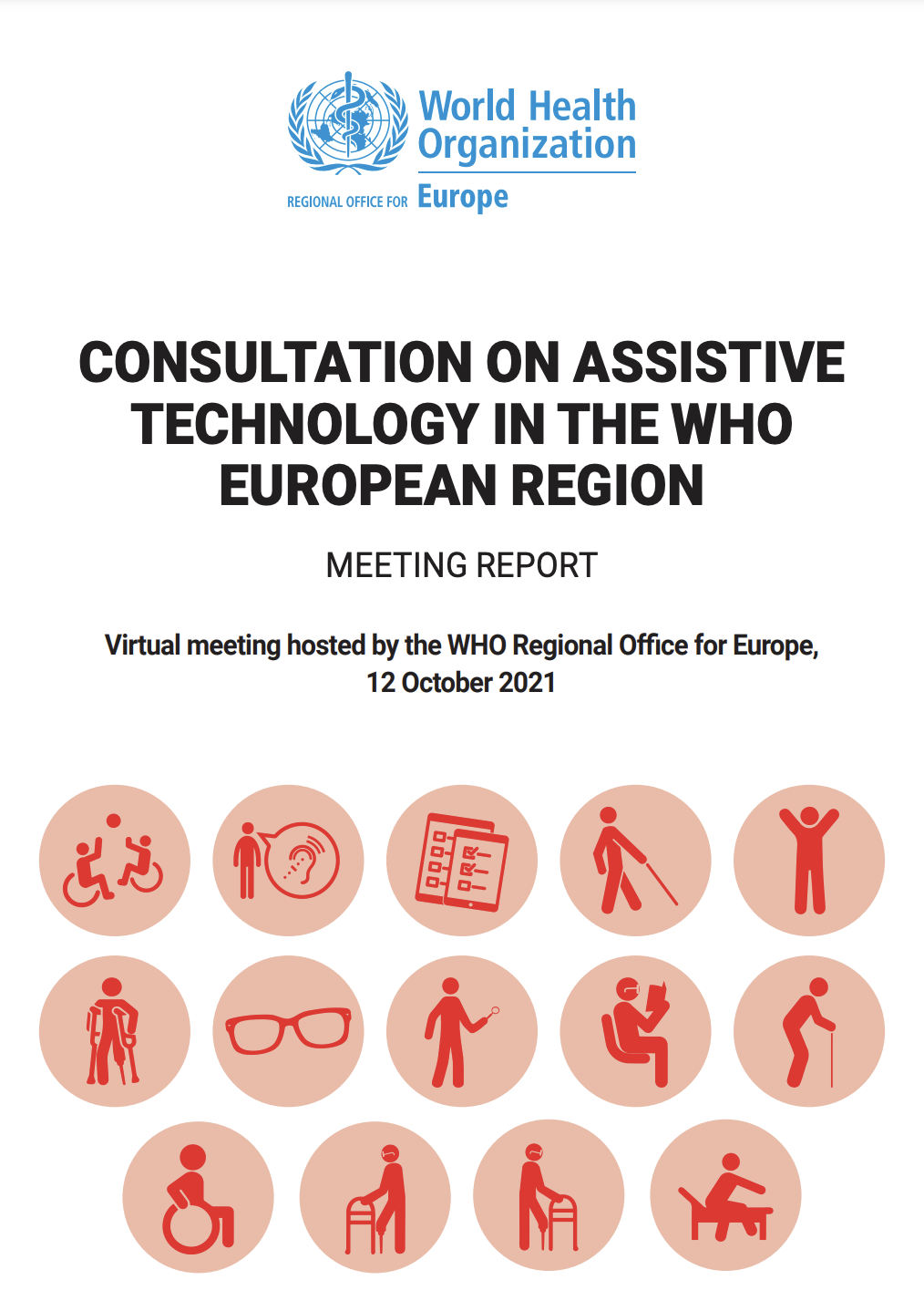
Consultation on assistive technology in the WHO European Region
World Health OrganizationOct. 12, 2021GlobalCase Studies and ReportsConsultation on assistive technology in the WHO European Region: meeting report: virtual meeting hosted by the WHO Regional Office for Europe, 12 October 2021
-
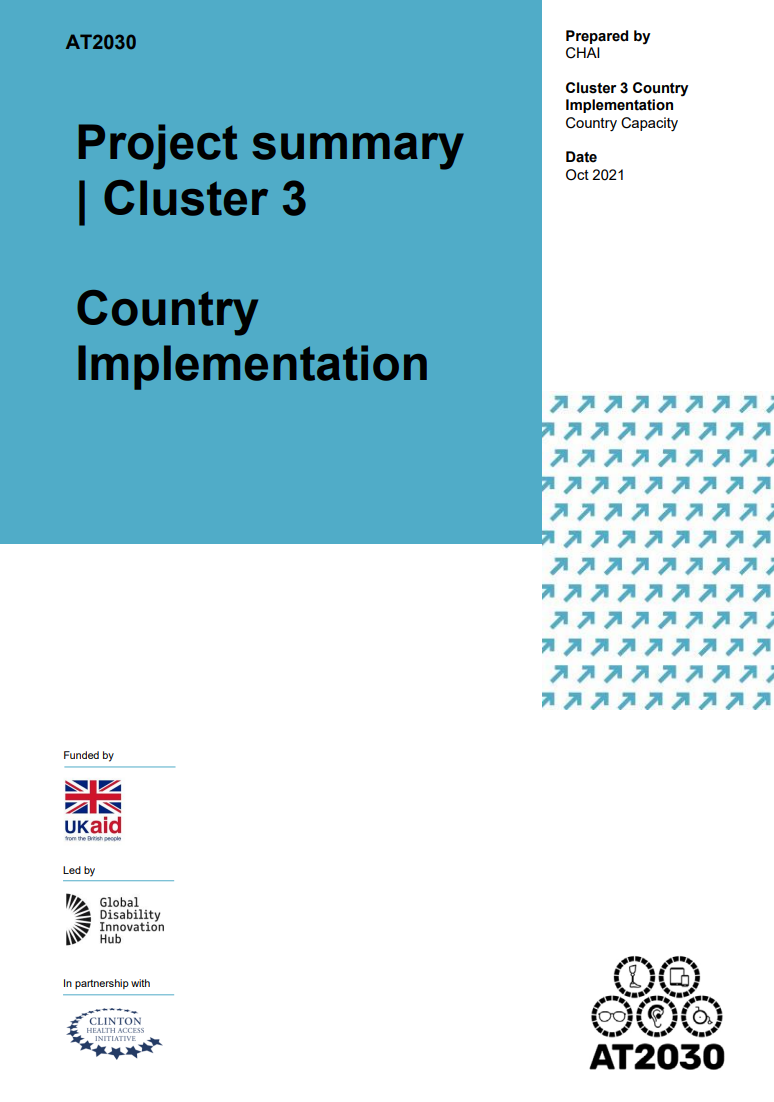
Project summary; Cluster 3 - Country Implementation
Clinton Health Access InitiativeOct. 6, 2021Case Studies and ReportsUnder Cluster 3 of AT2030, the Clinton Health Access Initiative (CHAI) partnered with country governments to identify opportunities to drive AT availability and affordability. To date, through CHAI’s work nearly 100,000 people directly benefited from the programme, either through delivery of AT or capacity building, and nearly 55 million persons with disabilities were impacted by new national AT policies or action plans. Find out more.
-
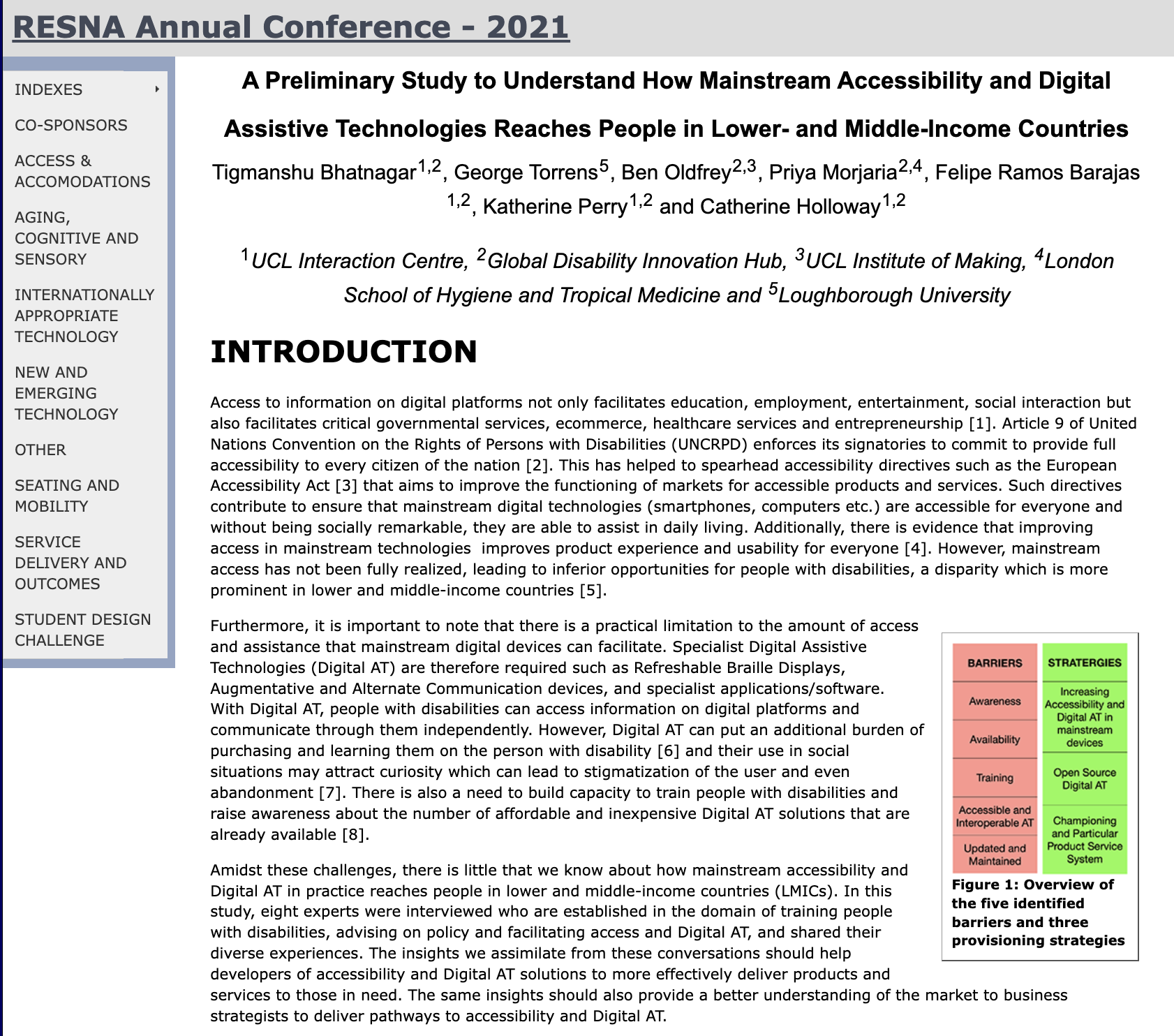
A Preliminary Study to Understand How Mainstream Accessibility and Digital Assistive Technologies Reaches People in Lower- and Middle-Income Countries
Catherine Holloway, Katherine Perry, Felipe Ramos Barajas, Dr Ben Oldfrey, Priya Morjaria, Tigmanshu Bhatnagar, George TorrensSept. 30, 2021Academic Research PublicationsIn this study, eight experts were interviewed who are established in the domain of training people with disabilities, advising on policy and facilitating access and Digital AT, and shared their diverse experiences. The insights we assimilate from these conversations should help developers of accessibility and Digital AT solutions to more effectively deliver products and services to those in need.
-
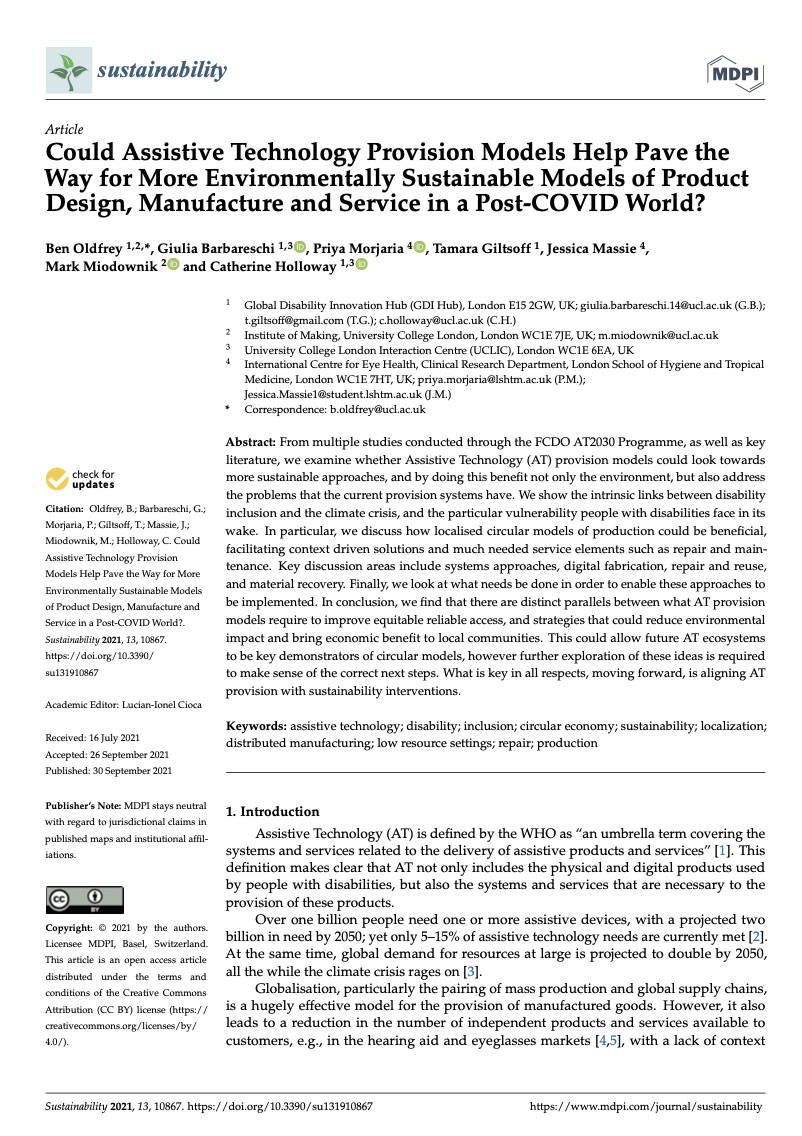
Could Assistive Technology Provision Models Help Pave the Way for More Environmentally Sustainable Models of Product Design, Manufacture and Service in a Post-COVID World?
Catherine Holloway, Giulia Barbareschi, Dr Ben Oldfrey, Priya Morjaria, Tamara Giltsoff, Mark Miodownik, Jessica MassieSept. 26, 2021Academic Research PublicationsAuthors of this paper examine whether Assistive Technology (AT) provision models could look towards more sustainable approaches, and by doing this benefit not only the environment, but also address the problems that the current provision systems have.
-
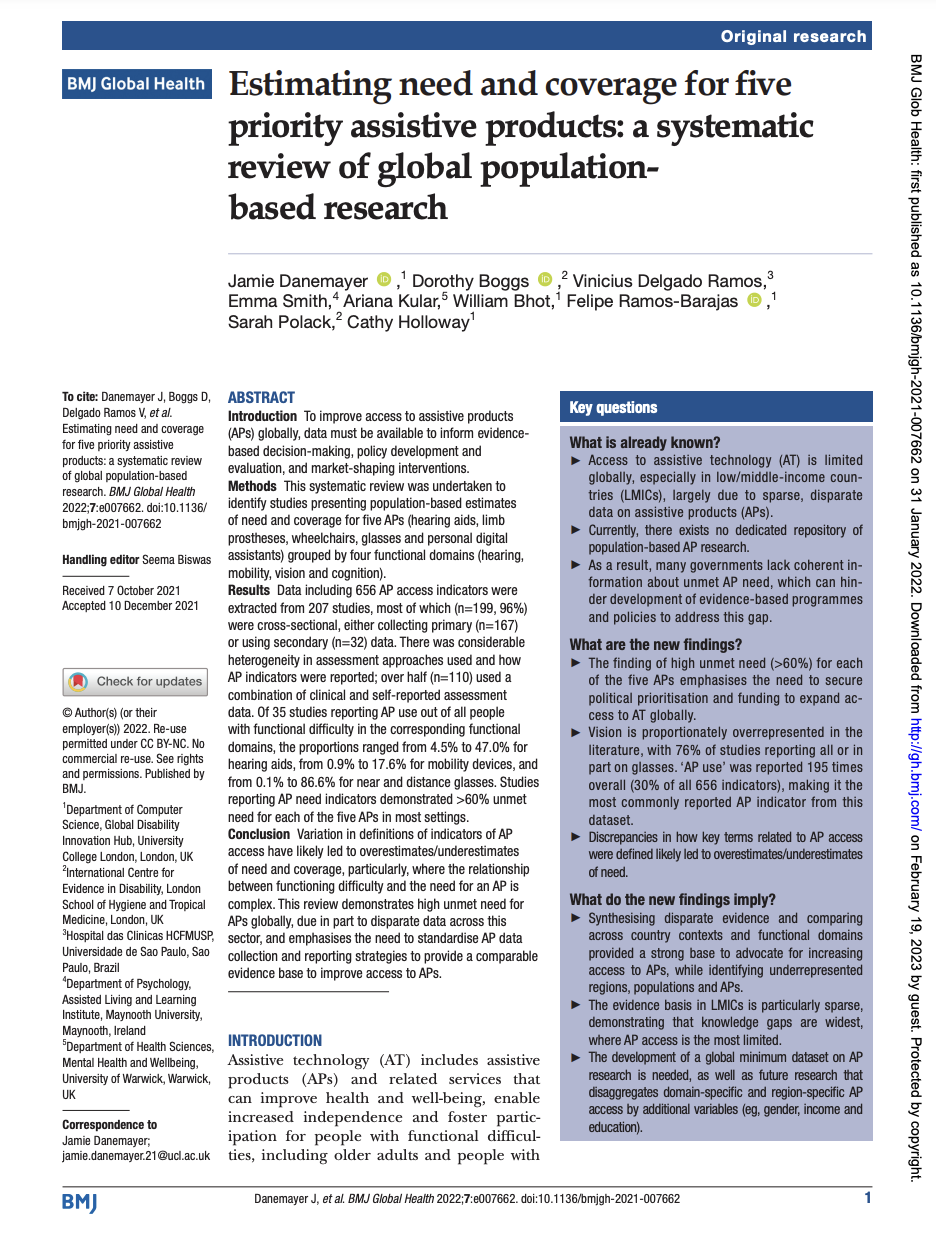
Estimating need and coverage for five priority assistive products: A systematic review of global population based research
Jamie Danemayer, Dorothy Boggs, Vinicius Delgado Ramos, Emma M. Smith, Ariana Kular, William Bhot, Felipe Ramos Barajas, Sarah Polack, Catherine HollowaySept. 20, 2021GlobalAcademic Research PublicationsThis systematic review collates data extracted from 207 studies, presenting indicators of population-level access to AT globally.
-
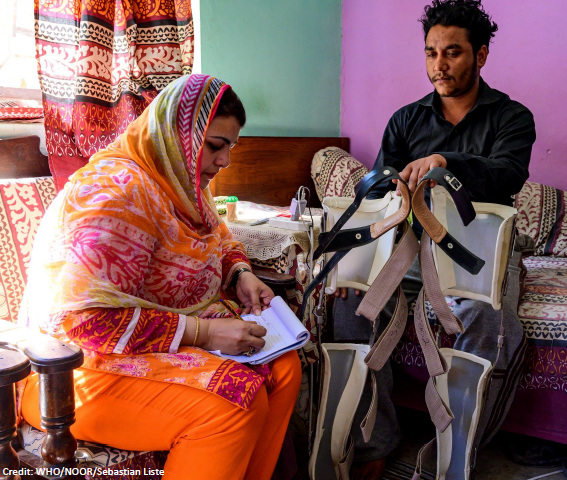
Assistive Technology Capacity Assessment (ATA-C) Instruction Manual
Global Disability Innovation Hub, Clinton Health Access Initiative, World Health OrganizationSept. 14, 2021GlobalAT2030 ResourcesThe Assistive Technology Capacity Assessment (ATA-C) tool has been developed to help understand the AT sector at national and subnational level using the 5P framework. The aim is to assist local stakeholders in collecting information to build up a comprehensive understanding of a country’s capacity to regulate, finance, procure and provide AT to meet national needs appropriately. This in turn can inform decision-making, strengthen the AT sector and improve access to AT.
-

What is assistive technology? LSHTM Presentation at ICED conference
London School of Hygiene and Tropical MedicineSept. 7, 2021AT2030 ResourcesWhat is assistive technology? LSHTM Presentation at ICED conference
-
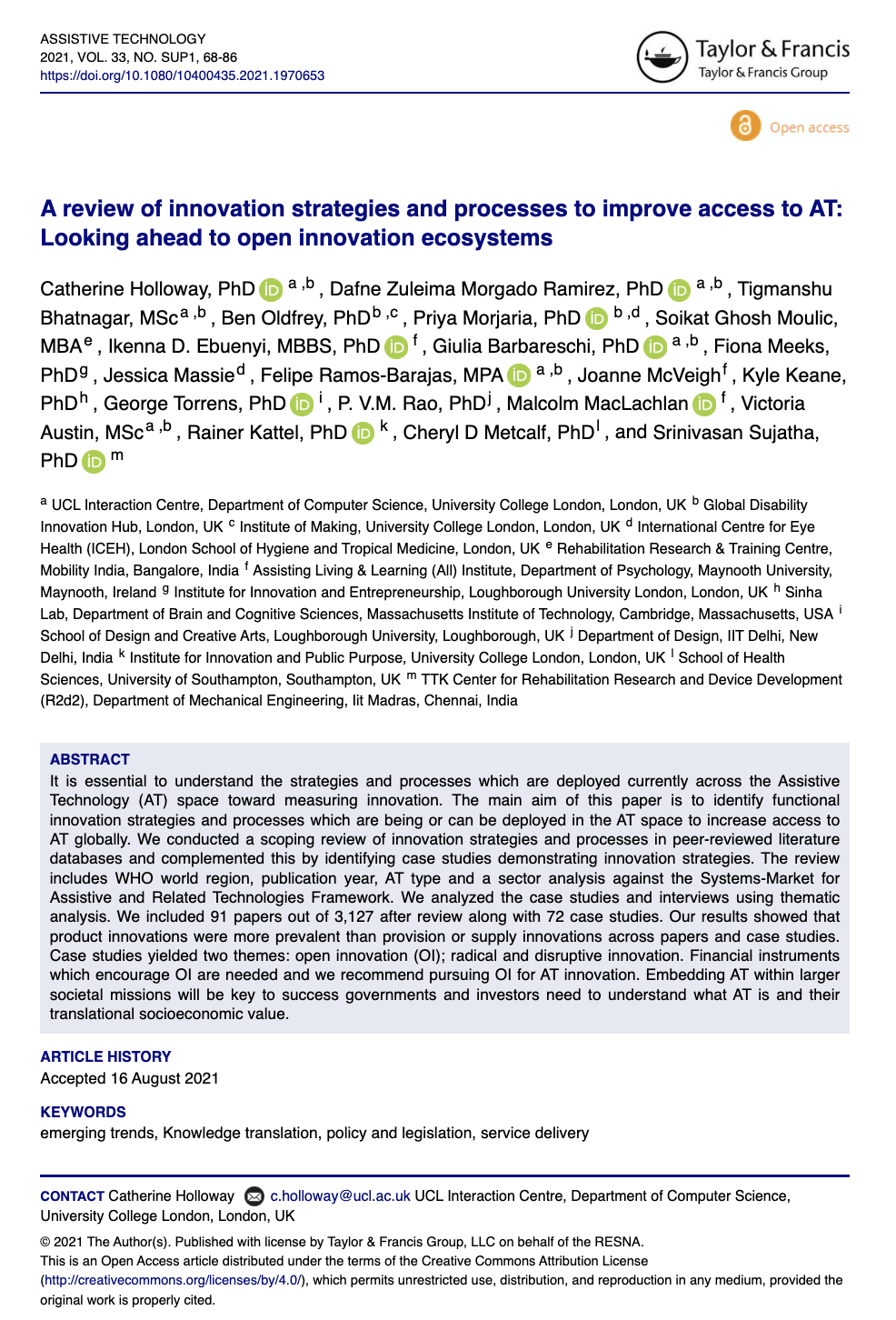
A review of innovation strategies and processes to improve access to AT: Looking ahead to open innovation ecosystems
Catherine Holloway, Vicki Austin, Malcolm MacLachlan, Rainer Kattel, Giulia Barbareschi, Felipe Ramos Barajas, Dr Ben Oldfrey, Joanne McVeigh, Priya Morjaria, Tigmanshu Bhatnagar, George Torrens, Dafne Zuleima Morgado Ramirez, Jessica Massie, Ikenna D. Ebuenyi, Fiona Meeks, Kyle Keane, Cheryl D Metcalf, Srinivasan Sujatha, P. V. M. RaoAug. 16, 2021Academic Research PublicationsThe main aim of this paper is to identify functional innovation strategies and processes which are being or can be deployed in the AT space to increase access to AT globally.
-
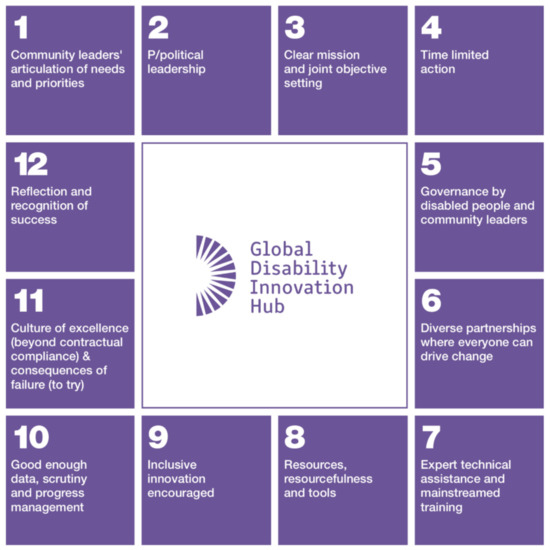
“This Is the Story of Community Leadership with Political Backing. (PM1)” Critical Junctures in Paralympic Legacy: Framing the London 2012 Disability Inclusion Model for New Global Challenges
Catherine Holloway, Vicki Austin, Kate MattickAug. 13, 2021Academic Research PublicationsThis paper presents new primary evidence from first-hand research from those who were involved; retrospectively framing the London 2012 Disability Inclusion Model such that it might be usable and developed for other global disability challenges. The model is presented here, alongside a narrative on its uniqueness and replicability to other major programs, as a public good. We welcome its active use, testing and adaption by others in service of disability innovation for a fairer world.
-
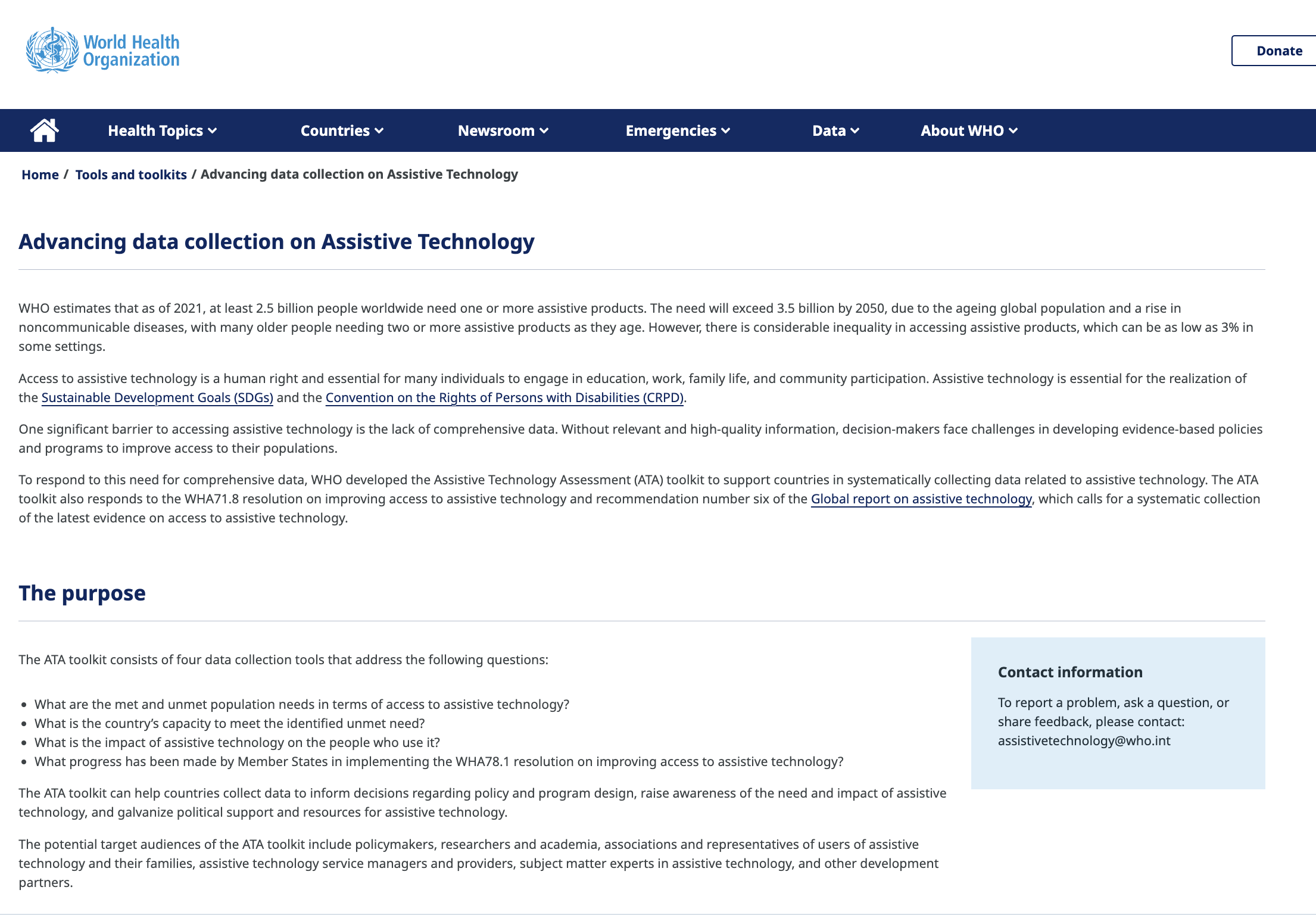
Advancing data collection on Assistive Technology
World Health OrganizationAug. 5, 2021GlobalAT2030 ResourcesThe Assistive Technology Assessment (ATA) toolkit from the WHO.
-
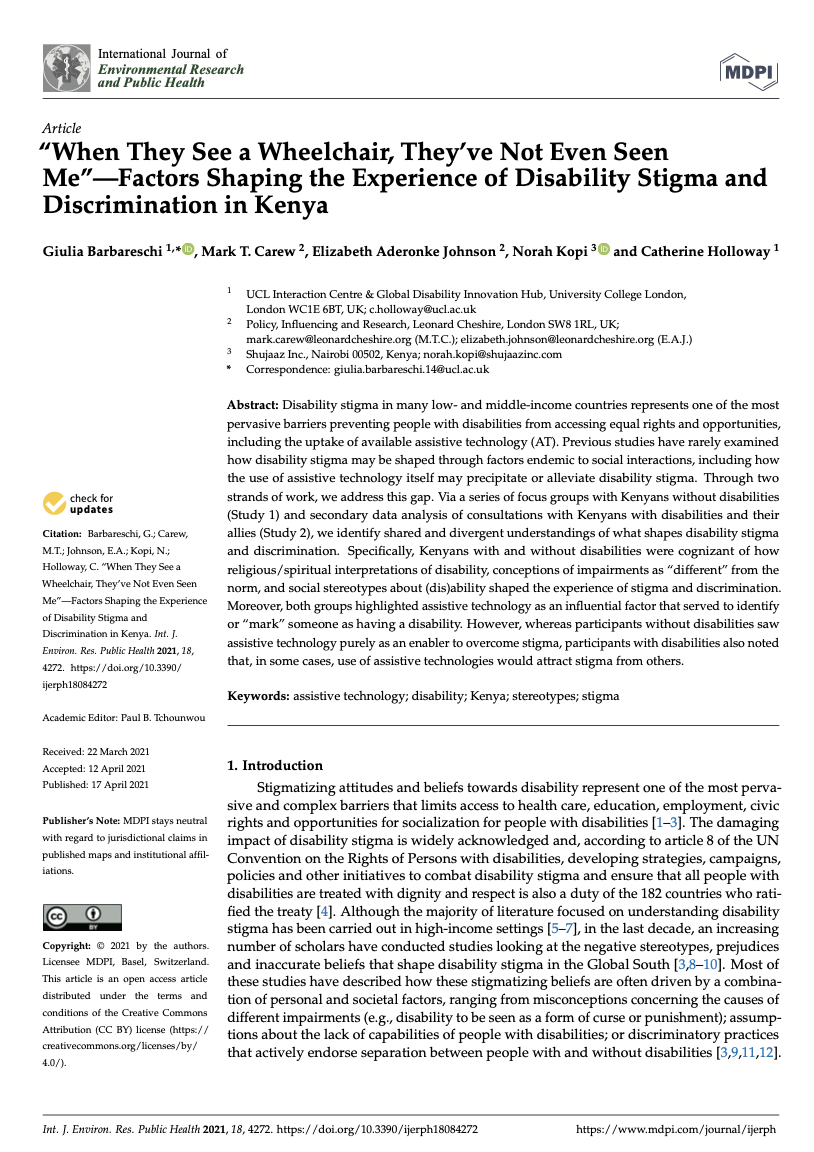
“When They See a Wheelchair, They’ve Not Even Seen Me”—Factors Shaping the Experience of Disability Stigma and Discrimination in Kenya
Giulia Barbareschi, Mark T. Carew, Elizabeth Aderonke Johnson, Norah Kopi, Catherine HollowayAug. 3, 2021KenyaAcademic Research PublicationsThis paper addresses the gap in research on the factors that shape the experience of disability stigma including social interactions and AT use in Kenya. Via a series of focus groups with Kenyans without disabilities (Study 1) and secondary data analysis of consultations with Kenyans with disabilities and their allies (Study 2), we identify shared and divergent understandings of what shapes disability stigma and discrimination and highlight assistive technology as an influential factor that served to identify or “mark” someone as having a disability.
-
Additive Manufacturing Techniques for Smart Prosthetics Liners
Global Disability Innovation HubJuly 21, 2021Academic Research PublicationsElastomeric liners are commonly worn between the prosthetic socket and the limb. A number of improvements to the state of the art of liner technology are required to address outstanding problems. A liner that conforms to the residuum more accurately, may improve the skin health at the stump-socket interface. Previous work has shown that for effective thermal management of the socket environment, an active heat removal system is required, yet this is not available.
-
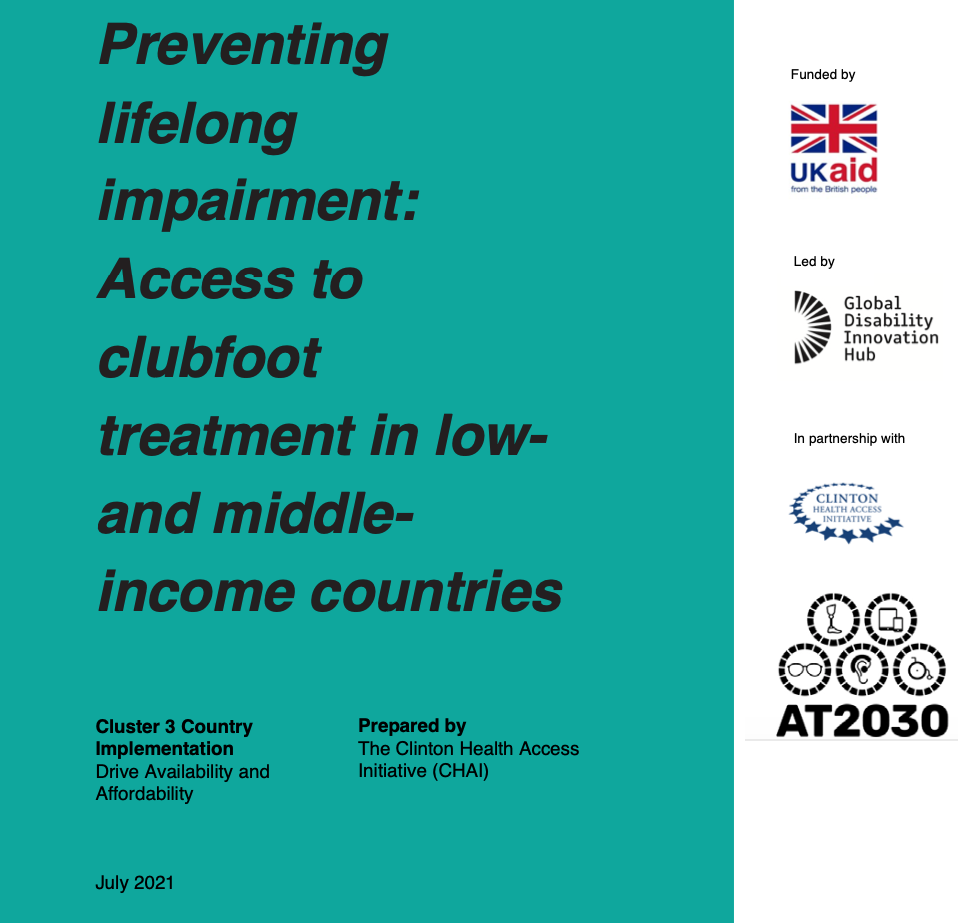
Preventing lifelong impairment: Access to clubfoot treatment in low- and middle-income countries
Clinton Health Access InitiativeJuly 19, 2021GlobalCase Studies and ReportsCongenital talipes equinovarus (CTEV), commonly known as clubfoot is one of the most common congenital conditions, affecting 1 in 800 births. Left untreated, it can lead to life-long impairment, impacting participation in society, education, and employment. Most children with clubfoot can be successfully treated with the Ponseti method, a low-cost, cost-effective, and minimally invasive treatment protocol. Despite progress, less than 1 in 5 children born with clubfoot in low- and middle-income countries (LMICs) currently receive treatment. This new cutting edge report, authored by CHAI under AT2030, explores solutions and recommendations for ensuring affordable and appropriate assistive technologies reach the children and adults with clubfoot that need it.
-
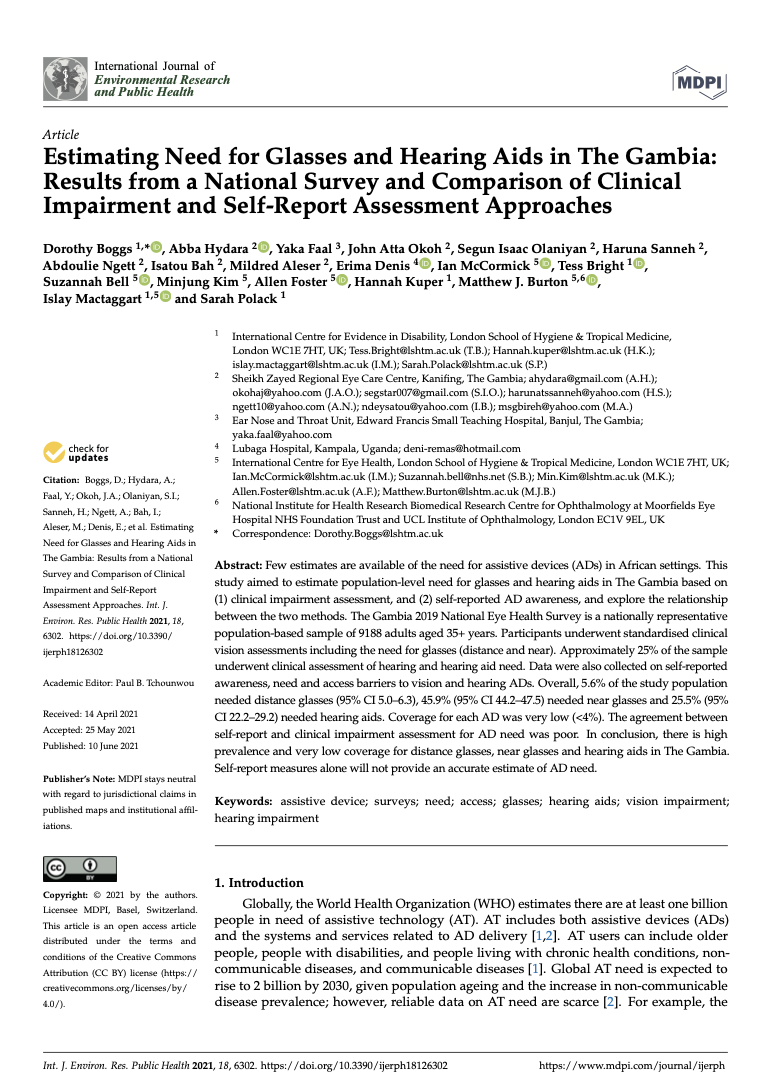
Estimating Need for Glasses and Hearing Aids in The Gambia: Results from a National Survey and Comparison of Clinical Impairment and Self-Report Assessment Approaches
Dorothy Boggs, Abba Hydara, Yaka Faal, John A. Okah, Segun I. Olaniyan, Haruna Sanneh, Abdoulie Ngett, Isatou Bah, Mildred Aleser, Erima Denis, Ian McCormick, Tess Bright, Suzannah Bell, Minjung Kim, Allen Foster, Hannah Kuper, Matthew J. Burton, Islay Mactaggart, Sarah PolackJuly 13, 2021GambiaAcademic Research PublicationsThis study estimates population-level need for glasses and hearing aids in The Gambia based on (1) clinical impairment assessment, and (2) self-reported assistive device awareness, and explores the relationship between the two methods.
-
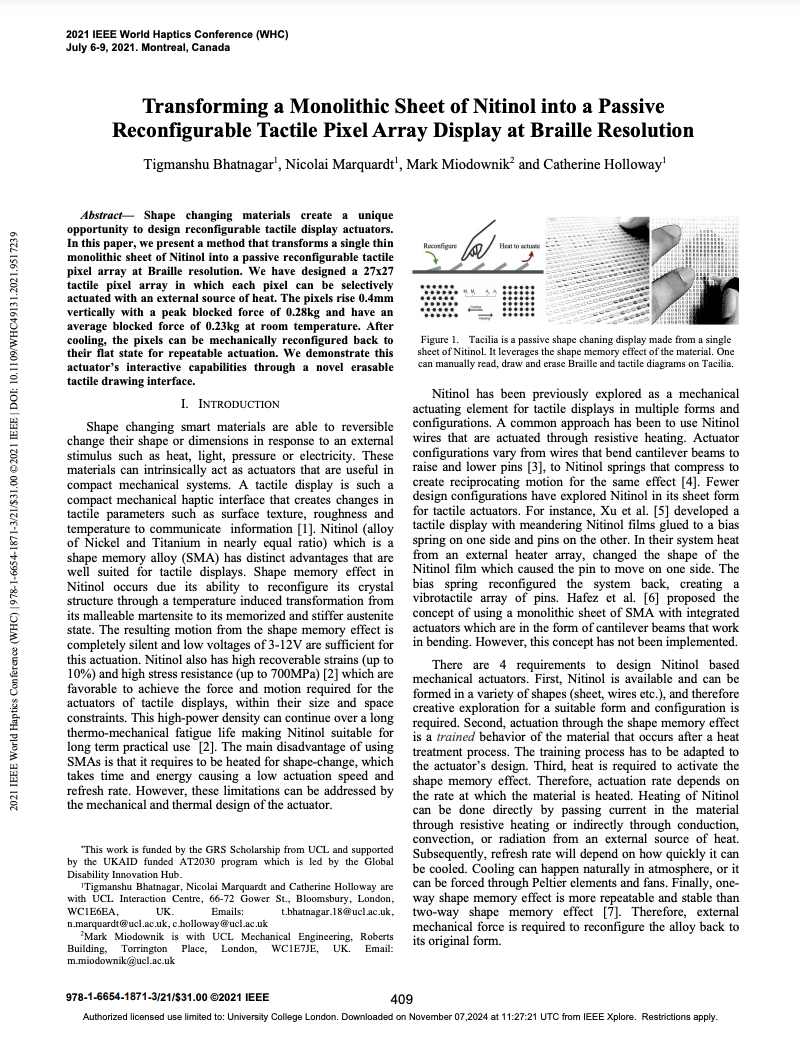
Transforming a Monolithic Sheet of Nitinol into a Passive Reconfigurable Tactile Pixel Array Display at Braille Resolution
Catherine Holloway, Tigmanshu Bhatnagar, Mark Miodownik, Nicolai MarquardtJuly 6, 2021Academic Research PublicationsPublished in: 2021 IEEE World Haptics Conference (WHC) Shape changing materials create a unique opportunity to design reconfigurable tactile display actuators. In this paper, we present a method that transforms a single thin monolithic sheet of Nitinol into a passive reconfigurable tactile pixel array at Braille resolution.
Previous PageNext Page
